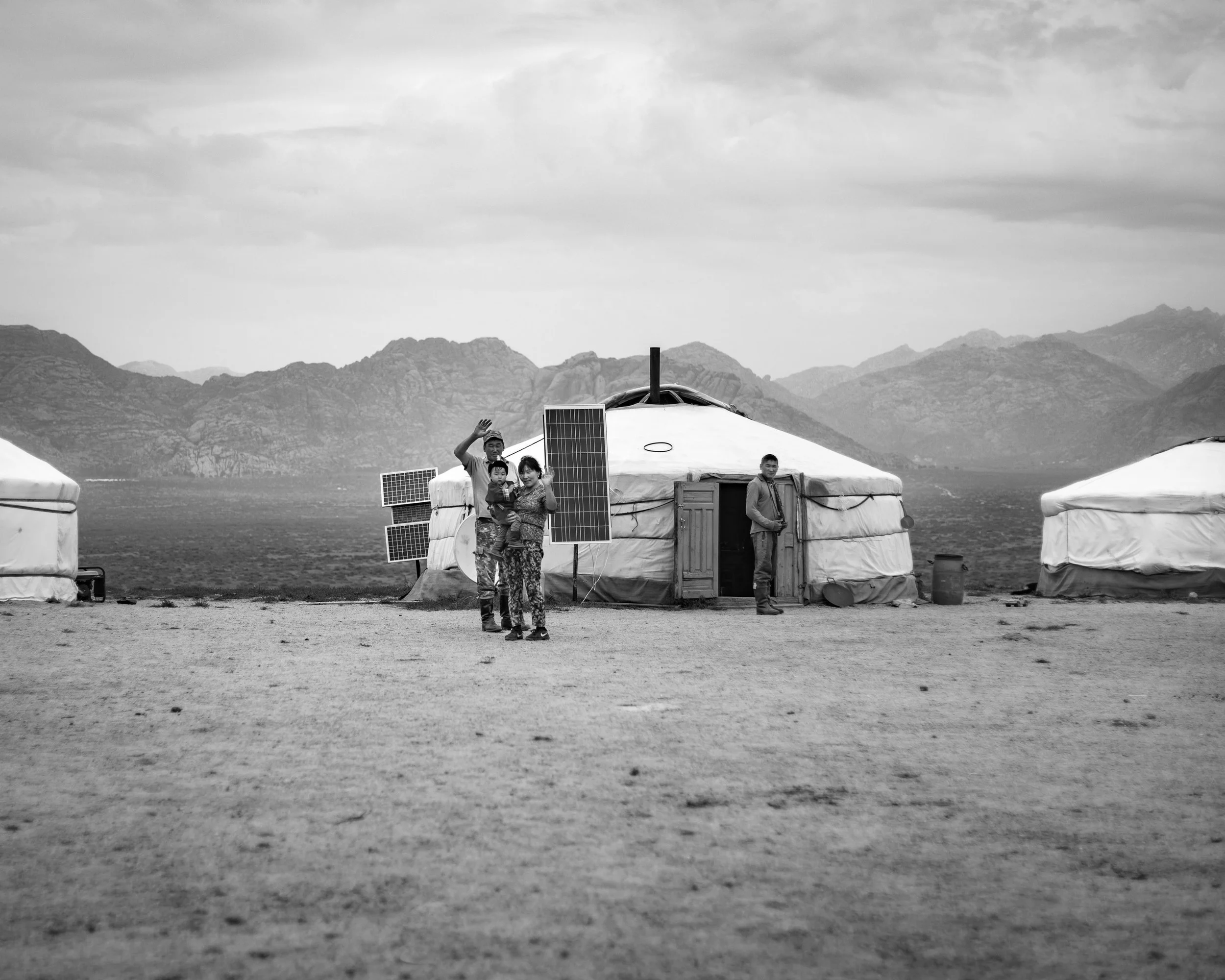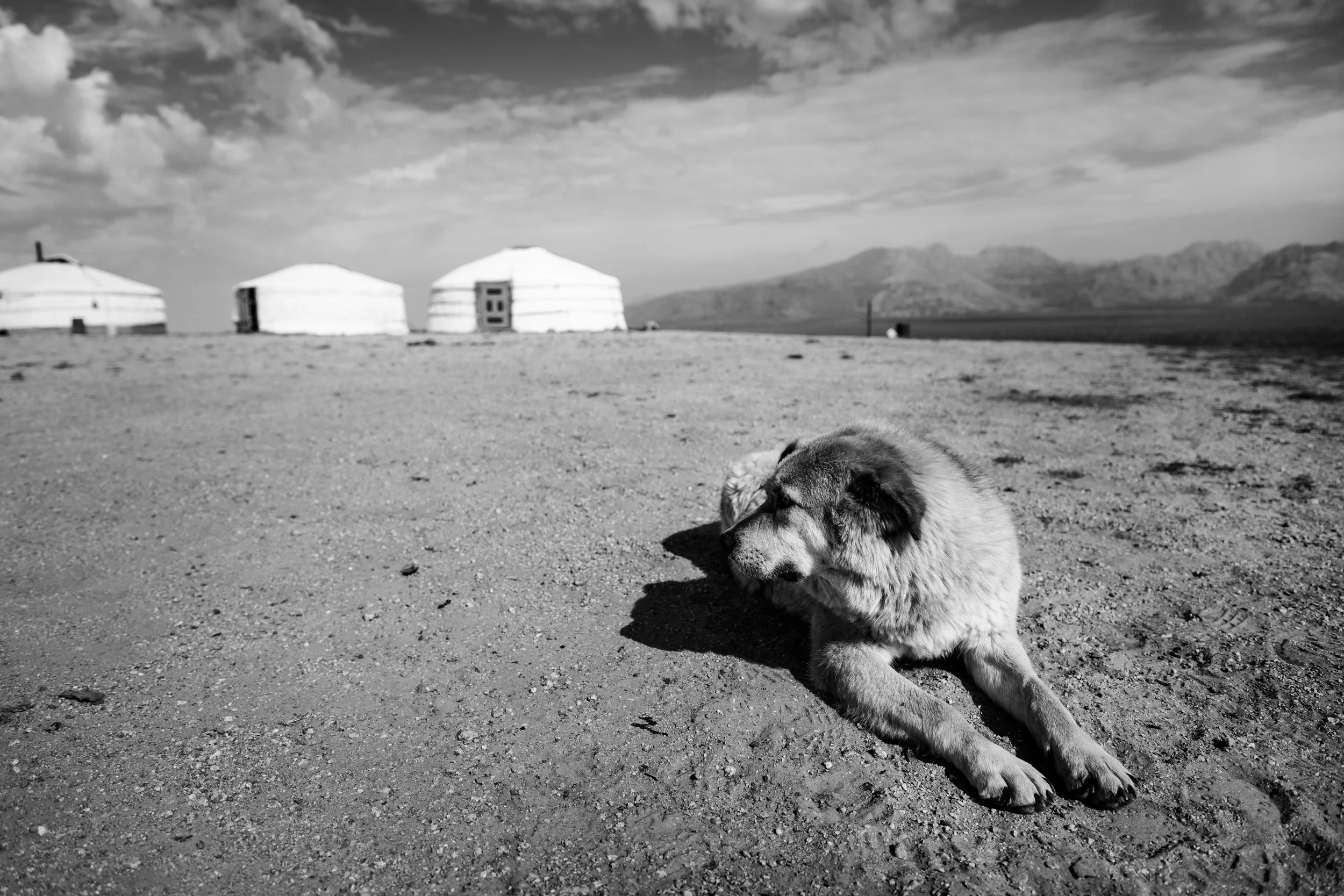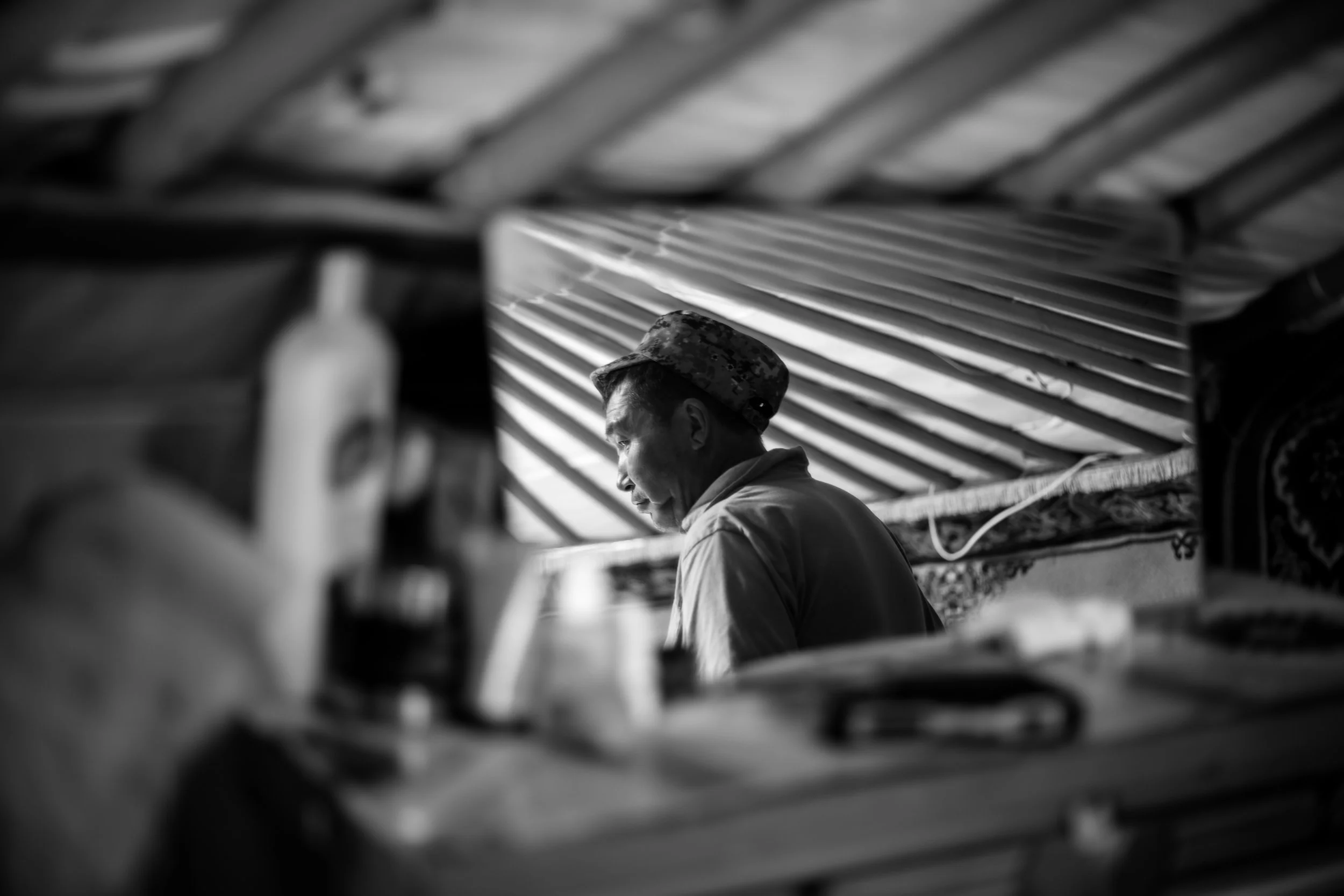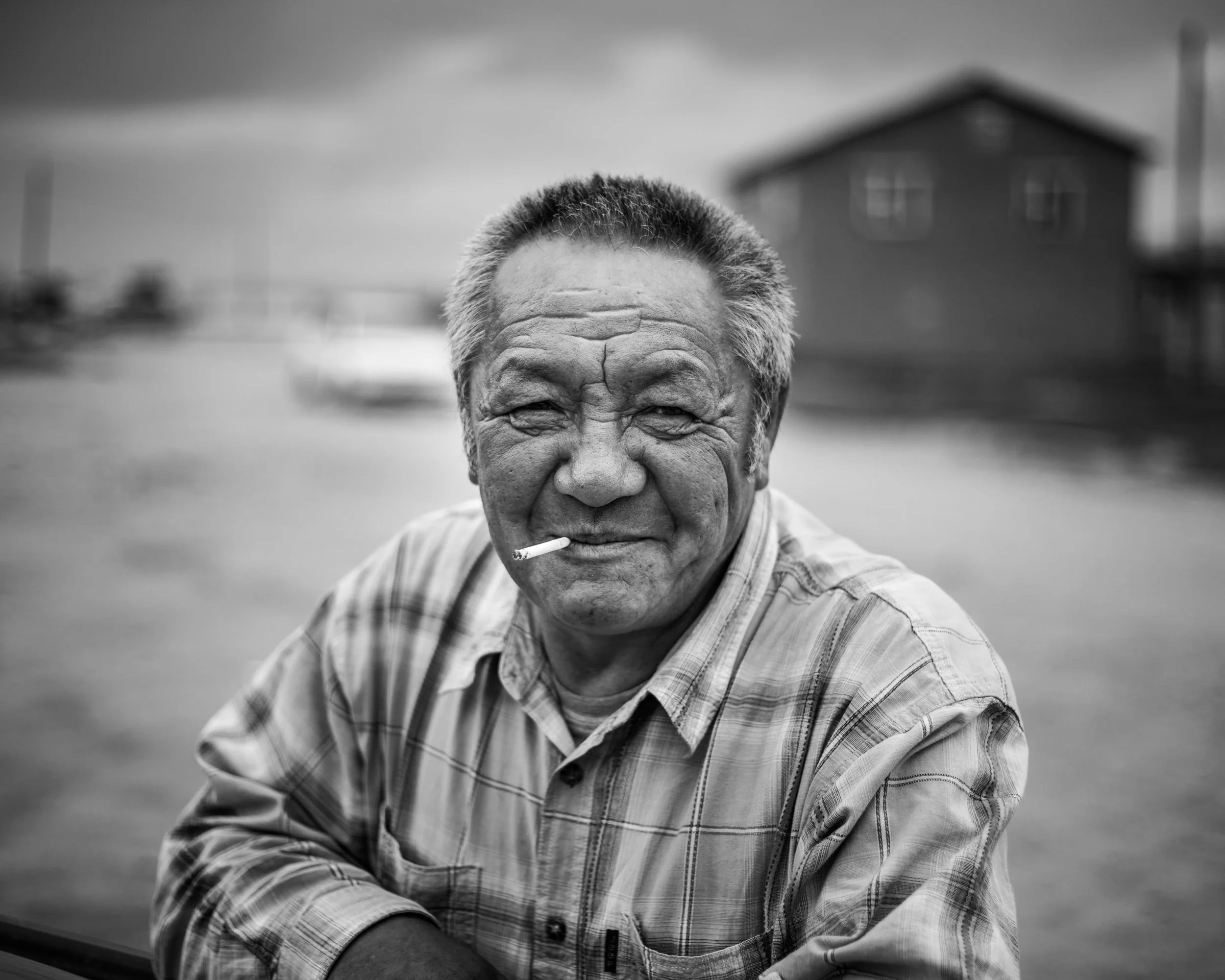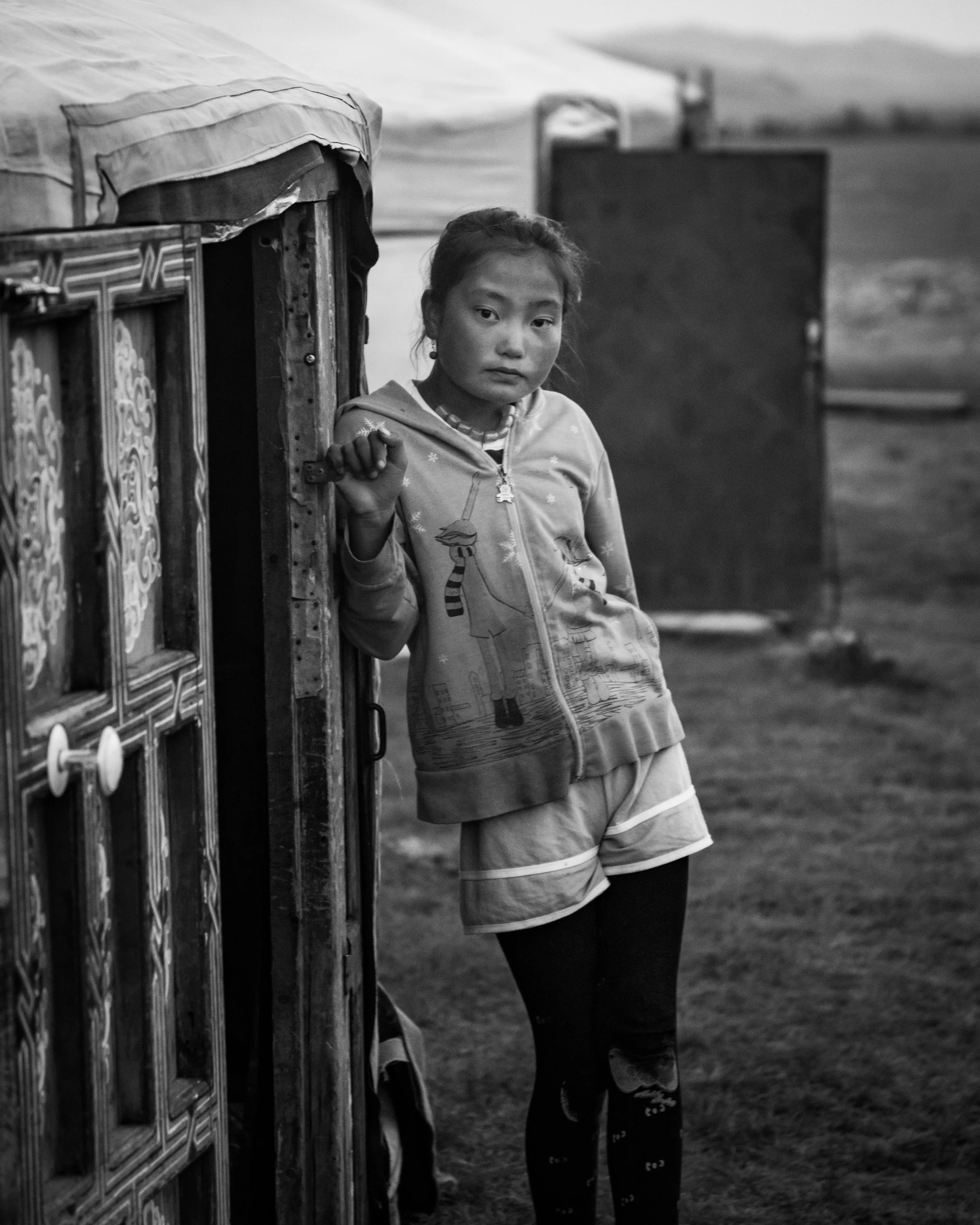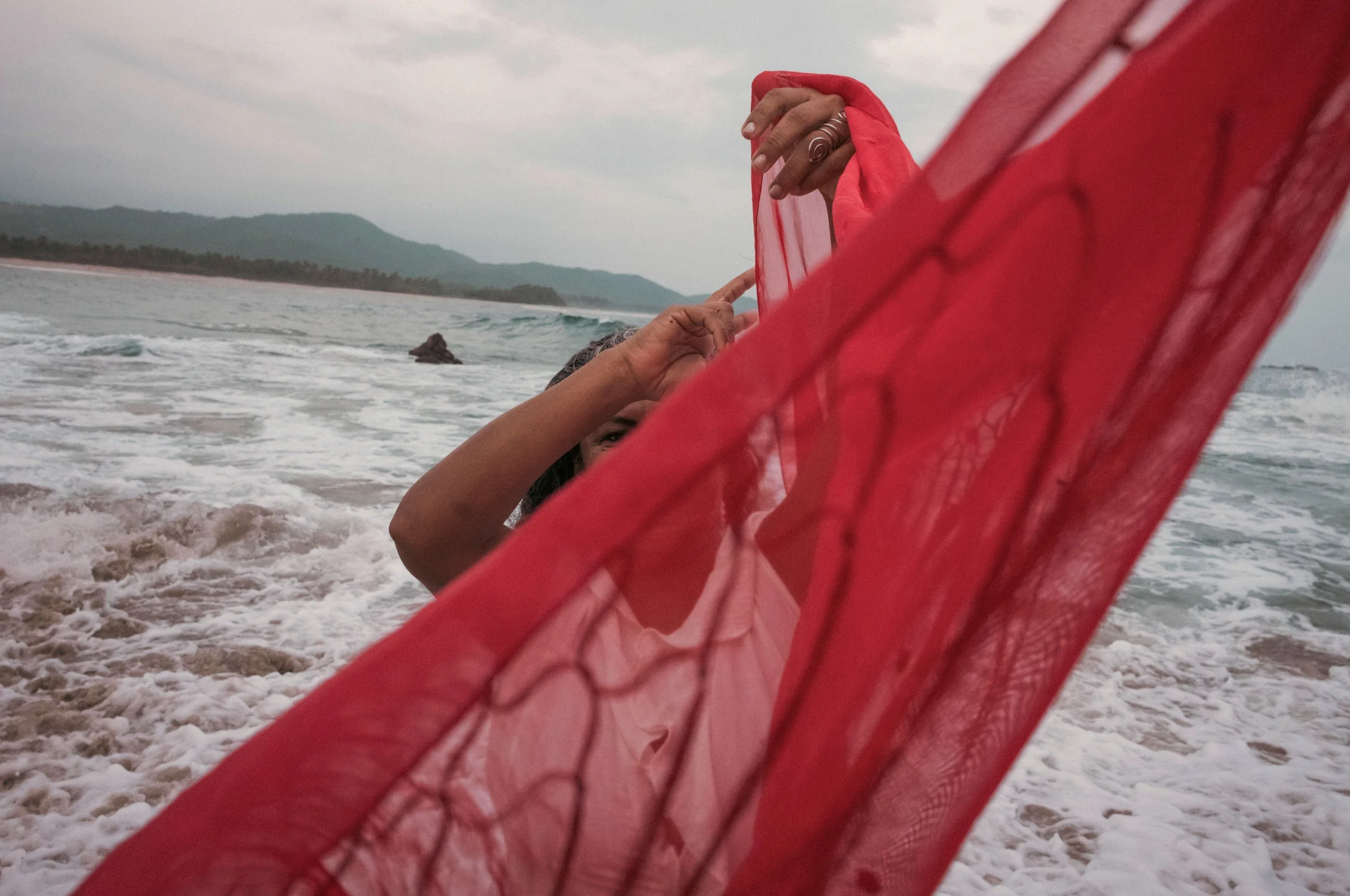Photo by Daniel Fast
Buyanbadrakh ‘Buyan’—the youngest child of the second family we stayed with— stands in the middle of the family’s camp, surrounded by her endless backyard. Orkhon Valley, Ovorkhangai, Mongolia.
Considered the most sparsely populated nation in the world, with only 4.3 people per square mile, Mongolia's vast landscape seems to carry on forever. These rugged, rolling hills are also home to nomadic communities.
Following Mongolia's transition from a one-party socialist state to a free market multiparty democracy in 1990, there has been an increase in poverty levels, especially among these rural nomadic communities. Today, one in three Mongolians live below the poverty line, with nomadic herders making up the majority. This change in the economy has forced many to search for employment in other areas, such as the country's expanding mining industry. At the same time, climate change is affecting the country’s delicate ecosystem, affecting a quarter of the population who still live as nomadic herders. Thousands of people are moving into the city, resulting in a large nomadic district on the outskirts of Ulaanbaatar, which is not connected to the city’s power and sewer systems. With more and more choosing to shift from their traditional life-style towards the city, these nomads are finding it increasingly difficult to maintain their traditional culture and way of life.
Photo by Daniel Fast
A Mongolian NGO called “Ger to Ger” is creating opportunities for nomadic communities to take power back. The organization promotes a community-based ecotourism program for visitors who are interested in supporting these communities while also ensuring profits stay within the community. They work with numerous rural residents and nomadic communities across the country to develop their capacities and skills while offering instalment loan plans to pay for necessary equipment and lodging. This program has made it possible for many families to support themselves and continue their nomadic lifestyle by hosting one or two groups of travellers each week. Eighty percent of the profit from these homestay experiences is given directly back to the families, generating needed income during the three-month tourism season in Mongolia.
Photo by Daniel Fast
One of our drivers, Bayasgalan “Happy”, smokes while we stop to explore a small town on the way to the Orkhon Valley. Khujirt, Ovorkhangai Province, Mongolia.
Photo by Daniel Fast
Buyan's cousin, Nomin stands outside a ger used for guests at the family’s camp. The Ger to Ger organization finds guests for the family, as a way to help supplement their income as livestock herders. Orkhon Valley, Ovorkhangai, Mongolia.
Photo by Daniel Fast
Barbaatar, another one of our drivers, takes a moment to rest before navigating the rough roads through the Orkhon Valley National Park. Uurtiin Tokhoi Cliff, Ovorkhangai, Mongolia.
Of course this kind of tourism carries a dark side that risks exploiting vulnerable communities and romanticizing Indigenous cultures; That is why it is important for us to look beyond sustainable tourism to regenerative tourism—where the industry gives back in a more meaningful sense that puts community voices at the centre of decision-making. This is ever-important to consider as the global tourist population continue to grow rapidly and tourism operations begin to sprout left, right and centre. “Global tourism is a big industry and growing steadily, so it’s important to be aware of the impact we have locally. When you consider the substantial economic, social, political, and environmental effects of globalization felt everywhere, it becomes even more paramount,” said Fast.
“Ger to Ger” does the work of listening to community’s needs and responding accordingly with a creative business model that benefits everyone. While we should always be critical, it’s important to remember that Indigenous communities are not frozen in time, nor should they be; and that to respond to the pressures of capitalism and climate change, adaptation can and will take on many forms.
Click here to learn more about Ger to Ger
This article was first published in PWB Magazine #11, on sale now.


